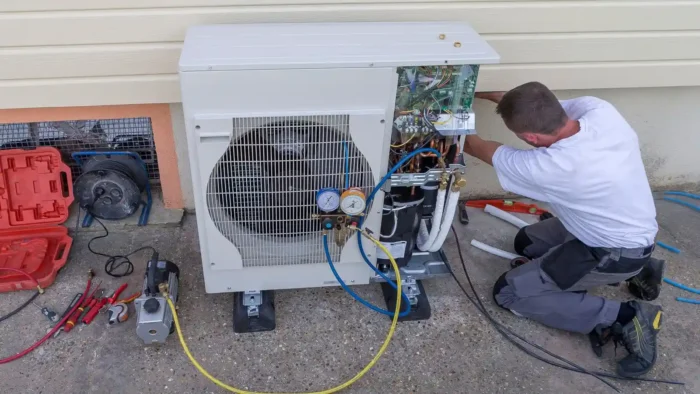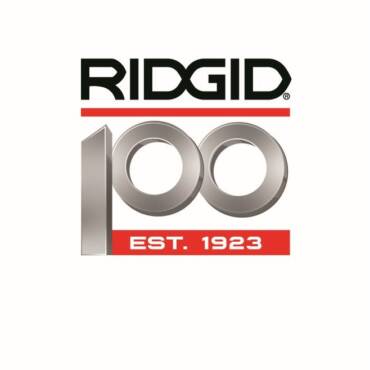Heat pumps work hard all year long to keep your Denver home comfortable. Unlike traditional systems that only run part of the year, your heat pump handles both heating and cooling. This constant use means regular care is essential to keep it running smoothly and avoid costly repairs.
Most homeowners wonder about the right maintenance schedule for their system. The answer depends on how you use your heat pump and what type you have. Let’s break down everything you need to know about heat pump service and why it matters for your home.
Understanding How Often Should a Heat Pump Be Serviced
Your heat pump needs attention twice each year. This schedule differs from furnaces or air conditioners that only require one annual visit. Since heat pumps operate year-round, they face more wear and need extra care.
Schedule your first heat pump tune up in spring before cooling season starts. The second service should happen in fall before you need heating. This timing ensures your system performs well when you need it most.
Some homeowners try to save money with just one yearly visit. This approach creates problems. Your system might work fine during one season but fail when temperatures change. Twice-yearly maintenance catches issues early and prevents breakdowns during extreme weather.
Spring maintenance prepares your heat pump for summer cooling demands. Fall service gets it ready for winter heating. Each visit focuses on different system components based on upcoming seasonal needs.
If you only use your heat pump as backup heat, you still need regular service. Even systems that run less often collect dust and develop mechanical issues. Milehi HVAC recommends the same twice-yearly schedule regardless of usage patterns.
You may read Does A Heat Pump Replace A Furnace?
Why Twice-Yearly Service Matters
Heat pumps transfer heat rather than create it. This process involves refrigerant, compressors, coils, and fans that work constantly. Parts wear down faster with continuous operation compared to seasonal systems.
Regular heat pump service and repair prevents small problems from becoming expensive failures. A loose connection or dirty coil reduces efficiency gradually. You might not notice until your energy bills spike or the system stops working completely.
The Department of Energy reports that proper maintenance can boost heat pump efficiency by up to 25%. This improvement translates directly to lower monthly costs and better home comfort.
Types of Heat Pumps We Service
Different heat pump styles require specific maintenance approaches. Milehi HVAC services all common types found in Denver homes.
Air-Source Heat Pumps: These popular units move heat between your home and outside air. They work well in moderate climates and cost less to install than other options. Ductless versions offer flexible heating and cooling for specific rooms.
Ground-Source Heat Pumps: Also called geothermal systems, these pumps exchange heat with the ground or nearby water. They cost more upfront but provide excellent efficiency and lower operating costs. Ground loops need less maintenance than air-source outdoor units.
Absorption Heat Pumps: These systems use natural gas or solar power along with heat transfer technology. They’re less common in residential settings but work well for specific applications.
Each type needs attention to coils, refrigerant levels, electrical connections, and moving parts. The basic maintenance process stays similar across different models, though technicians adjust their approach based on your specific system.
What To Expect During a Heat Pump Tune-Up Service
MileHi HVAC follows a detailed maintenance checklist to ensure nothing is overlooked. During your appointment, our technicians perform a full system inspection.
The process starts with air filter inspection and replacement if needed. Dirty filters restrict airflow and force your system to work harder. This simple step often provides immediate efficiency improvements.
Technicians clean indoor and outdoor coils to remove dirt and debris. Clean coils transfer heat better and help your system run at peak performance. We also check refrigerant levels and add more if needed. Low refrigerant makes your heat pump struggle to heat or cool effectively.
Electrical connections get tightened and tested for safety. Loose wires create fire hazards and cause system malfunctions. We lubricate motors and moving parts to reduce friction and wear.
Blower components receive thorough cleaning and inspection. The blower moves air through your home, so it must operate smoothly. We check belts for cracks or looseness and replace worn parts.
Thermostat calibration ensures accurate temperature control. An off-calibration thermostat wastes energy and creates comfort problems. We test the entire system through complete heating and cooling cycles to verify proper operation.
Duct inspection finds leaks that waste conditioned air. Sealing leaks improves efficiency and comfort throughout your home. Our technicians also check drainage systems to prevent water damage from condensation.
If we discover minor issues during maintenance, we often fix them immediately. This approach prevents future service calls and keeps your system reliable. Major problems get explained clearly with repair options and cost estimates.
What Are the Benefits of Annual Heat Pump Maintenance?
Regular professional service delivers multiple advantages for your home and wallet. These benefits make the investment worthwhile.
Extended Equipment Life: Heat pumps typically last 15 to 20 years with proper care. Skipping maintenance can cut this lifespan in half. Regular tune-ups keep parts working smoothly and prevent premature failure.
Lower Energy Costs: Clean, well-maintained systems use less power to heat and cool your home. Most homeowners notice reduced utility bills after scheduling regular maintenance. The savings often exceed the service cost.
Fewer Emergency Repairs: Catching problems early prevents most breakdowns. You avoid expensive emergency service calls and the discomfort of a failed system during extreme temperatures.
Maintained Warranty Coverage: Most manufacturers require professional maintenance to keep warranties valid. Skipping service might void your coverage, leaving you to pay for expensive repairs that should be covered.
Better Indoor Air Quality: Clean filters and coils mean cleaner air circulating through your home. This benefit matters for family members with allergies or respiratory issues.
Consistent Comfort: Well-maintained systems heat and cool more evenly. You won’t deal with hot or cold spots in different rooms.
Improved Safety: Technicians check electrical components and system controls to ensure safe operation. This inspection prevents potential fire hazards or carbon monoxide issues in dual-fuel systems.
Environmental Benefits: Efficient operation reduces your carbon footprint. Heat pumps already use less energy than traditional systems, and maintenance keeps them performing at their best.
Simple Maintenance Tasks You Can Do
Between professional visits, you can perform basic upkeep to keep your system running well. Change or clean your air filter every month during heavy use periods. If you have pets or smoke indoors, check filters more often.
Keep the outdoor unit clear of leaves, grass clippings, and debris. Trim plants or bushes to maintain at least two feet of clearance around all sides. This space ensures proper airflow for heat exchange.
Clean outdoor coils gently with a garden hose when you notice dirt buildup. Never use a pressure washer, which can damage delicate fins. Always turn off power to the unit before cleaning.
Check indoor vents to ensure furniture or curtains don’t block airflow. Good circulation helps your system work efficiently and maintains comfort throughout your home.
Listen for unusual noises like grinding, squealing, or banging. These sounds often indicate developing problems that need professional attention. Contact Milehi HVAC if you notice anything concerning.
How Much Does Heat Pump Maintenance Cost?
Service costs vary based on your system type, age, and condition. Most Denver homeowners pay between $100 and $300 per visit for professional heat pump service.
Single visits typically cost more than joining a maintenance plan. Many HVAC companies offer annual agreements that include scheduled tune-ups at reduced rates. These plans often provide additional benefits like priority scheduling and repair discounts.
Milehi HVAC offers flexible maintenance programs designed for Denver homeowners. Our plans include twice-yearly service visits, priority emergency response, and discounts on any needed repairs. Members also receive reminders when service appointments approach, so you never miss important maintenance.
Consider the cost versus potential savings. A maintenance visit might seem expensive until you compare it to emergency repair bills. Replacing a failed compressor can cost several thousand dollars. Regular service prevents most of these failures.
Energy savings also offset maintenance costs. A system running at peak efficiency uses less power, lowering your monthly bills. Most homeowners recover their maintenance investment through reduced energy costs within the first year.
Choosing the Right Maintenance Plan
Look for plans that include everything your system needs. Basic agreements should cover complete inspections, cleaning, and tune-ups for both heating and cooling seasons.
Better plans add benefits like priority service, extended repair warranties, and discounts on parts and labor. Some include extra services like duct cleaning or indoor air quality assessments.
Read plan details carefully to understand what’s covered. Ask about additional charges for refrigerant, replacement parts, or after-hours service. A good plan should be straightforward with no hidden fees.
Consider companies that offer flexible scheduling and reminder systems. Life gets busy, and it’s easy to forget maintenance appointments. Automatic reminders help you stay on track with your service schedule.
Conclusion
Regular heat pump service protects your investment and keeps your Denver home comfortable year-round. At MileHi HVAC, we offer comprehensive HVAC services in Denver, including expert maintenance, repairs, and system replacements to ensure your heating and cooling systems perform at their best. Schedule maintenance twice annually to prevent breakdowns, reduce energy costs, and extend your system’s lifespan. Don’t wait until problems arise — contact MileHi HVAC today to set up your heat pump tune-up or any HVAC service and experience the difference professional care makes.
FAQs
How often should a heat pump be serviced?
Service your heat pump twice per year, once in spring before cooling season and once in fall before heating season. This schedule ensures optimal performance year-round.
Can I service my heat pump myself?
You can handle basic tasks like changing filters and keeping the outdoor unit clean. Professional technicians should perform detailed inspections, refrigerant checks, and mechanical adjustments.
What happens if I skip maintenance?
Skipped maintenance leads to reduced efficiency, higher energy bills, more frequent breakdowns, and shorter equipment life. It may also void your manufacturer’s warranty.
How long does a maintenance visit take?
Most heat pump tune-ups take 60 to 90 minutes. This time allows for thorough inspection, cleaning, and testing of all system components.
Whether you require installation, repair, or maintenance, our technicians will assist you with top-quality service at any time of the day or night. Take comfort in knowing your indoor air quality is the best it can be with MOE heating & cooling services Ontario's solution for heating, air conditioning, and ventilation that’s cooler than the rest.
Contact us to schedule a visit. Our qualified team of technicians, are always ready to help you and guide you for heating and cooling issues. Weather you want to replace an old furnace or install a brand new air conditioner, we are here to help you. Our main office is at Kitchener but we can service most of Ontario's cities
Source link



